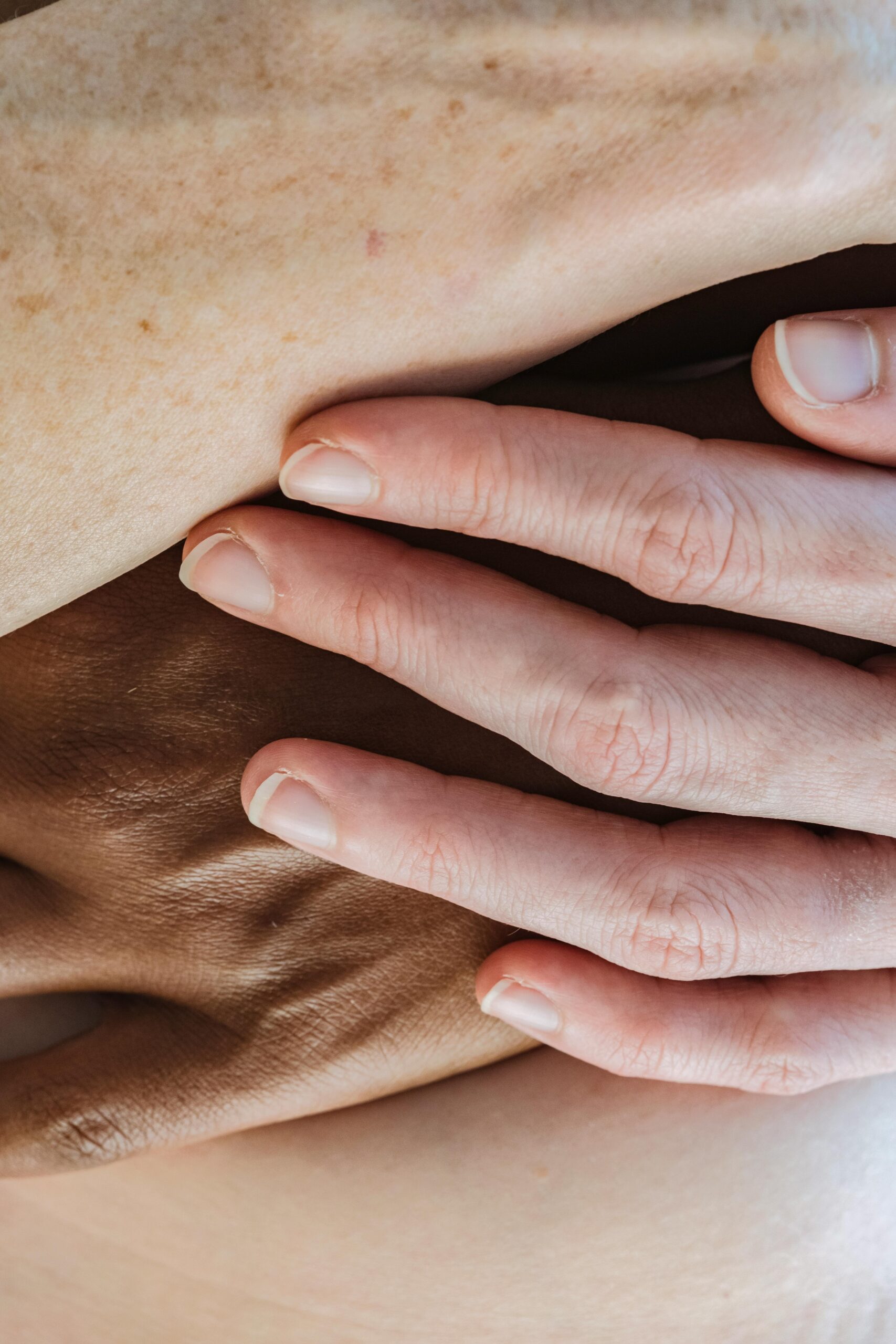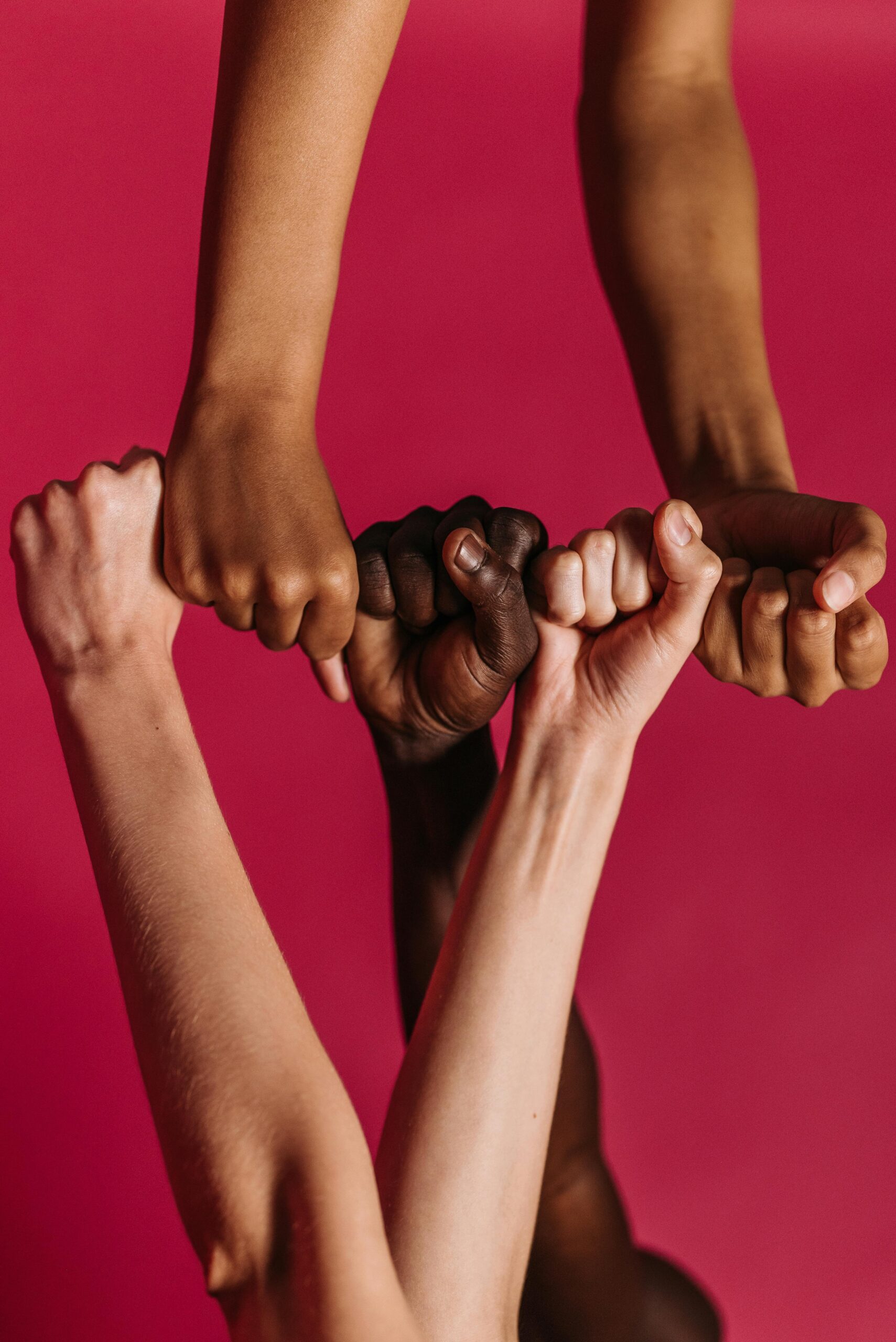November 3, 2024

By Josie Fome
Stereotypes Are Prevalent
“People are hard to hate up close.”
Renowned shame researcher, Brené Brown, reminds us of that in her book Braving the Wilderness: The Quest for True Belonging and the Courage to Stand Alone. What that statement means is, when you know someone’s story..when you see them up close, you leave little space for intolerance and hatred.
However, when we zoom out and look at the state of the world currently, it’s evident that stereotypes abound globally, whether we’d like for them to or not. Many of you, dear reader, can think of one or two stereotypes attributed to your race, your ethnicity, your gender, or even your generation (gen x vs millennials vs gen z etc.). And more often than not, stereotypes are often learned – be it directly or indirectly – in one’s youth.
I was raised in the Southeastern part of the US. My family had relocated from West Africa. Here I was in this new country, learning this new language, and trying to assimilate to this new culture. Despite all my attempts to integrate, however, back in the early 2000s (before #AfricatotheWorld) I was only seen as an “African.” And to make matters worse, the name-calling that would accompany the stereotyping was being referred to as an “African booty scratcher.”

Dear reader, to this day, I have no idea what an “African booty scratcher” is.
What I can tell you however, is the embarrassment I would be filled with upon realizing the name was being said in my direction. Hot with shame, I would put on a bold face, say “NO I’M NOT” (mind you, at 10 years old, I had no idea what that meant…doesn’t everyone get itchy all over their body?) and do my best to hold my head high as I walk out of the room.
These preconceived ideas and simplistic images “impose limitations on the people they target, assign them roles that are not necessarily suited to them and make it harder for them to be their true selves […]”
Stereotypes Are Harmful
Stereotypes are dangerous.
“Stereotypes are preconceived ideas and simplistic images that have a negative influence on the way we see people, interact with them and treat them.”
These preconceived ideas and simplistic images “impose limitations on the people they target, assign them roles that are not necessarily suited to them and make it harder for them to be their true selves,” and that’s why they are so harmful. Not only that, but these assumptions and their negative implications transform into biases that extend into ones’ work, family life, and social currency.
“According to the Institut de la statistique du Québec, in 2019, the number of hours women were absent from work due to personal or familial obligations was four times higher than that for men.

Even at work, tasks are often distributed in a stereotypical manner. For example, there is a tendency to believe that women are better equipped to manage sensitive situations involving colleagues, or that they are better at taking notes.”
Similarly, when we cross the Atlantic and consider African cultures, “gender bias has serious consequences for women’s careers and daily lives. In the case of work often carried out by women, this work is socially undervalued.” Empowering women socially requires empowering them financially. For example, “in Côte d’Ivoire, 9 million women actively participate in the country’s economy, but only 1 million of them have a bank account. Providing financial services to these women is a crucial step towards their financial and global empowerment,” says Mariam Djibo, the Managing Director of Advans Côte d’Ivoire.
Stereotypes evoke a lot of shame, and the biggest way to combat shame is through empathy.
So how can we reimagine a future with no stereotypes? The truth is, there is no magic bullet to quell all stereotypes globally. However, the journey to long-lasting, restorative change, starts with a single step..a single conversation..a single invitation. And when you’re invited into a space you’re unfamiliar with, lead with curiosity. Curiosity breeds questions and questions breeds conversation. And through dialogue, so many stereotypes can be debunked.
This is also known as leaning in. When you choose to lean in and engage, with your neighbour, with your colleague, with your frenemy, with your local grocery store clerk, with whomever you previously had a preconceived notion of…you open the door to not only conversation but to deeper understanding. In so doing, rather than further ostracizing yourselves, you’re contributing to closing the gap of confusion and shame.
[…] maybe you’re still wondering where you can start and how you can contribute to debunking the stereotypes in your community. Start with engaging more with this Sayaspora series […].
Stereotypes evoke a lot of shame, and the biggest way to combat shame is through empathy. Empathy is defined as the action of understanding, being aware of, being sensitive to, and vicariously experiencing the feelings, thoughts, and experience of another.
For Ayana O’Shun and Nisreen Baker, they chose to start the conversation in the best way they know how..through film. Their documentaries, Le Mythe de la Femme Noire and Les femmes arabes disent ÇA? respectively, both touch on stereotypes associated with their communities, specifically the women in their communities. In producing these pieces of work and sharing them with the world, they invite others to have a better understanding of what it truly means to be a Black or Arab woman.

Stereotypes Must be Debunked
Making films to spur conversations is one way to engage in dialogue, but maybe you’re still wondering where you can start and how you can contribute to debunking the stereotypes in your community. Start with engaging more with this Sayaspora series as it delves into stories from marginalized, underrepresented, and often misrepresented groups. Consider also your circle of influence, both online and offline. In a time where the world has become “smaller” thanks to social media, it’s now easier than ever to have narrative power and control the story that’s put out there for all to engage with. Be mindful of what you’re engaging with, both online and offline. Finally, engage with organizations that are busy doing the work, either through dialogue, events, articles, etc.
And that’s the beauty that stems from leaning in and getting up close to people, to better understand.
Being able to share one’s story, extending grace and understanding will be how we debunk stereotypes. One of the most comforting phrases in the English language is “me too.” When someone shares that not only do they understand you, but that they see you, you move from wanting to hide or shrink yourself, to wanting to live in your full truth..and that’s the freedom we should all have.
Now, that little girl who was once called an “African booty scratcher,” grew up to learn that so many other African immigrants were also called that. And when we shared our stories, we laughed and laughed. She’s all grown up and has been able to witness those same people who once labeled her as “other,” now being interested in her culture. And that’s the beauty that stems from leaning in and getting up close to people, to better understand.

References:
Effects of stereotypes on personal development. Gouvernement du Québec. (n.d.). https://www.quebec.ca/en/family-and-support-for-individuals/childhood/child-development/effects-stereotypes-personal-development/definition-stereotypes
MBAYE, B. (2024, June 9). Les Voix des femmes sont essentielles pour briser Les préjugés ⋆ speak up Africa. Speak Up Africa. https://www.speakupafrica.org/fr/womens-voices-are-essentials-to-break-the-bias/
Merriam-Webster. (n.d.). Empathy definition & meaning. Merriam-Webster. https://www.merriam-webster.com/dictionary/empathy
Understanding stereotypes, prejudice and discrimination. Kids Help Phone. (2023, January 13). https://kidshelpphone.ca/get-info/understanding-stereotypes-prejudice-and-discrimination/?_ga=2.72376411.934671787.1727912031-949315662.1727912031&_gl=1%2A43ixbk%2A_ga%2AOTQ5MzE1NjYyLjE3Mjc5MTIwMzE.%2A_ga_TQY135CFXS%2AMTcyNzkxMjAzMS4xLjAuMTcyNzkxMjAzMS42MC4wLjcyMTQwMjY0NA..
Similar articles

January 20, 2025




